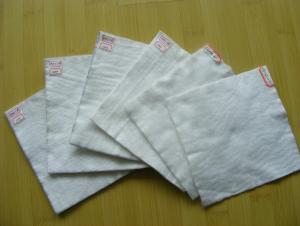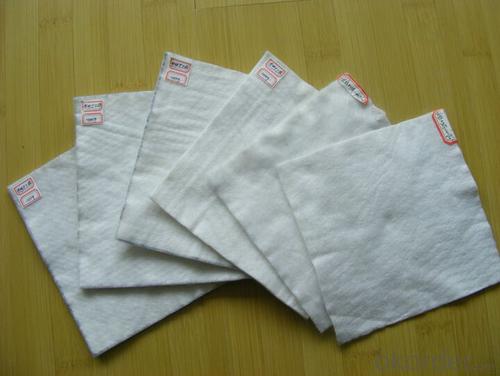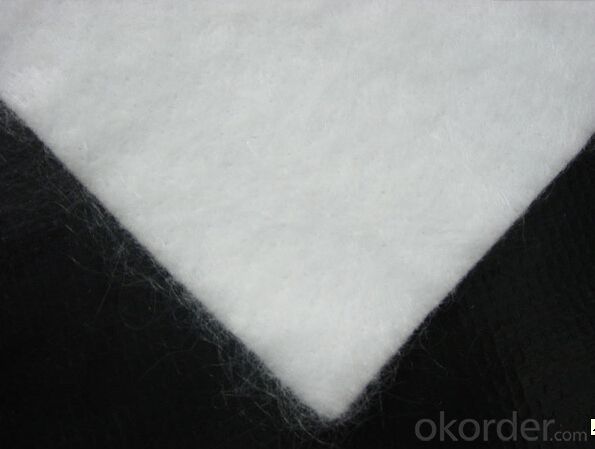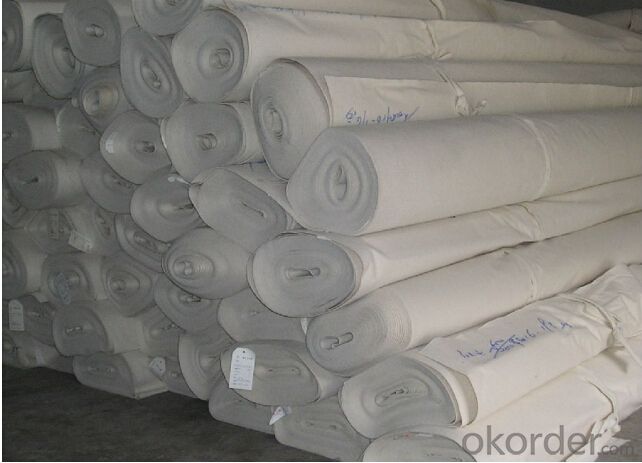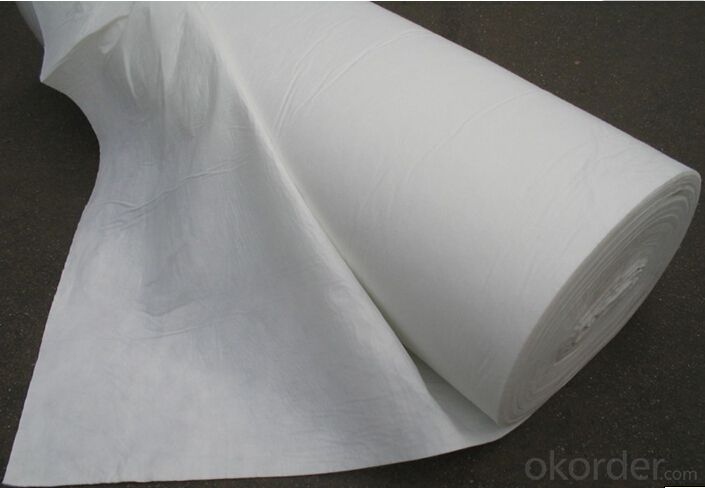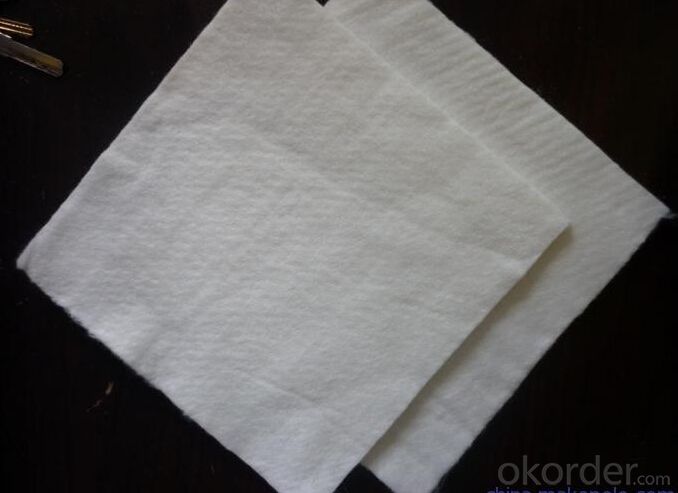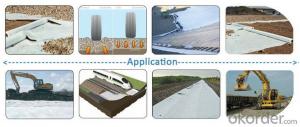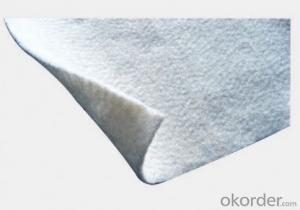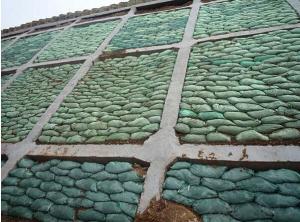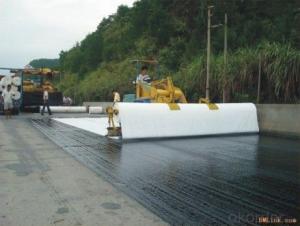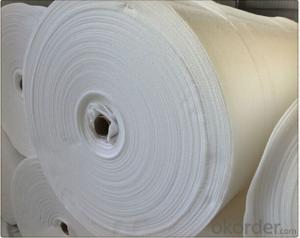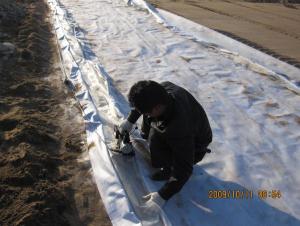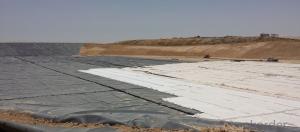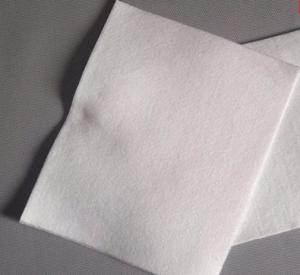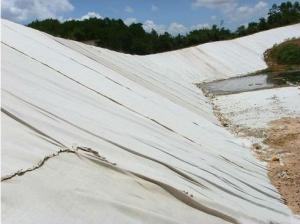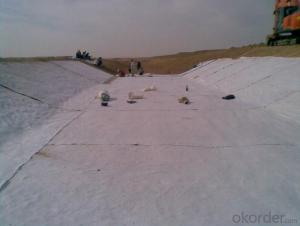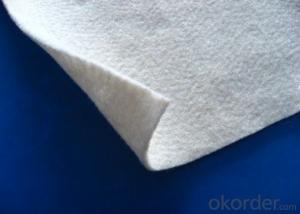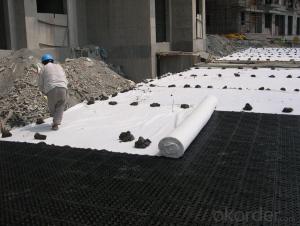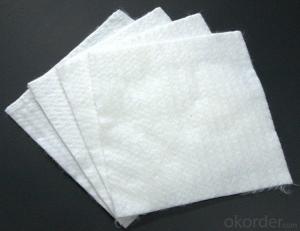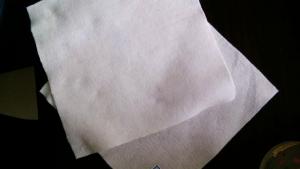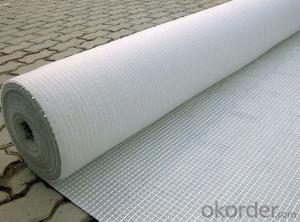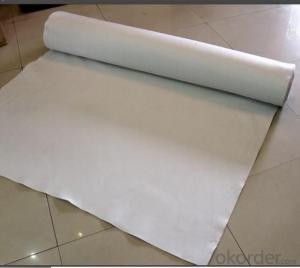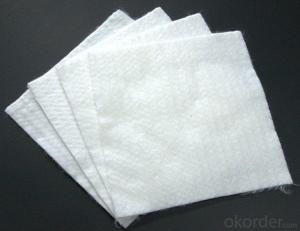Inbitex Geotextile - PP/PET Short Fiber Needle Punched Nonwoven Geotextile with Very Competitive Price and Good Quality
- Loading Port:
- Qingdao
- Payment Terms:
- TT or LC
- Min Order Qty:
- 5000 m²
- Supply Capability:
- 120000 m²/month
OKorder Service Pledge
OKorder Financial Service
You Might Also Like
PP/PET Short Fiber Needle Punched Nonwoven Geotextile with 100g-1500g
1.Specifications of PP/PET Short Fiber Needle Punched Nonwoven Geotextile with 100g-1500g
Weight / Mass: 100g/m2-1500g/m2 .
Width: Within 8 m (1m-8m as request ).
Length: 50-200m/roll (as request).
Material: PP / PET .
Color: Black , white , grey , as your request.
Certificate: CE/ISO9001/ISO14001
Manufacturing method: nonwoven
2.Features of PP/PET Short Fiber Needle Punched Nonwoven Geotextile with 100g-1500g
Good flexibility
Permeability
Filtration
Separation and easy for construction
3.Application of PP/PET Short Fiber Needle Punched Nonwoven Geotextile with 100g-1500g
Highway
Railway
Dam
Reclamation for filtration
Separation drainage and protection
4.Technical Data of PP/PET Short Fiber Needle Punched Nonwoven Geotextile with 100g-1500g
Item | Specification | |||||||||||||||||||||||||
Weight | 100 | 150 | 200 | 250 | 300 | 350 | 400 | 450 | 500 | 600 | 800 | |||||||||||||||
Weight variation,% | -8 | -8 | -8 | -8 | -7 | -7 | -7 | -7 | -6 | -6 | -6 | |||||||||||||||
Thickness(mm≥) | 0.9 | 1.3 | 1.7 | 2.1 | 2.4 | 2.7 | 3.0 | 3.3 | 3.6 | 4.1 | 5.0 | |||||||||||||||
Width variation,% | -0.5 | |||||||||||||||||||||||||
Break strength ,KN/m≥ | 2.5 | 4.5 | 6.5 | 8.0 | 9.5 | 11.0 | 12.5 | 14.0 | 16.0 | 19.0 | 25.0 | |||||||||||||||
Elongation at break,% | 25-100 | |||||||||||||||||||||||||
CBR Mullen Burst Strength | 0.3 | 0.6 | 0.9 | 1.2 | 1.5 | 1.8 | 2.1 | 2.4 | 2.7 | 3.2 | 4.0 | |||||||||||||||
Sieve size O90(O95),mm | 0.07-0.2 | |||||||||||||||||||||||||
Vertical Permeability Coefficient cm/s | K×(10-1-10-3) | |||||||||||||||||||||||||
Tear strength,KN≥ | 0.08 | 0.12 | 0.16 | 0.2 | 0.24 | 0.28 | 0.33 | 0.38 | 0.42 | 0.46 | 0.6 | |||||||||||||||
5.Some Photos of PP/PET Short Fiber Needle Punched Nonwoven Geotextile with 100g-1500g
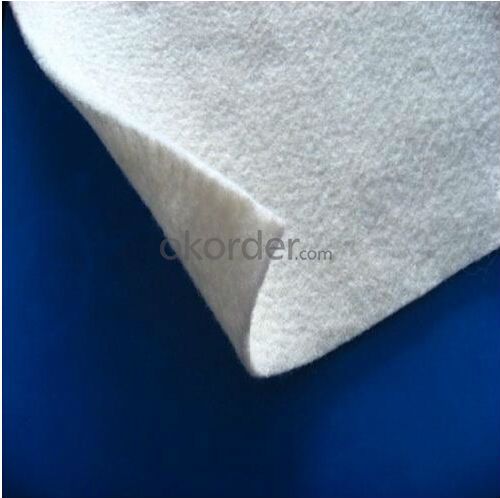
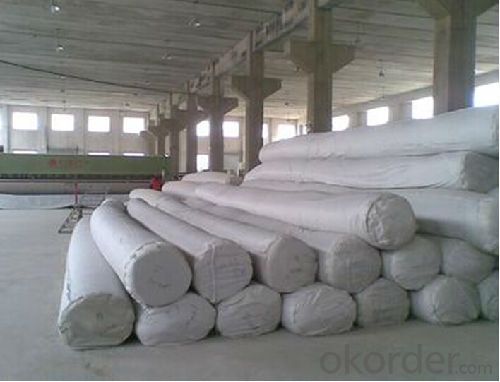
- Q: What is the geotextile of polypropylene gb / t?
- GB / T-2017 Geosynthetics Static Crack Test (CBR Method) This standard specifies the method of measuring the breaking strength of geosynthetics by flat top pressing bar. This method is usually carried out on samples that specify the standard atmospheric humidity. This standard applies to all types of geosynthetics, but does not apply to materials with a pore size greater than 10mm.
- Q: What are the specifications for geotextiles used in erosion control mats?
- The specifications for geotextiles used in erosion control mats typically include factors such as material composition, weight, thickness, tensile strength, permeability, and UV resistance. These specifications are important to ensure the geotextiles effectively prevent soil erosion, withstand environmental conditions, and provide long-term durability.
- Q: What are the different geotextile installation equipment and tools?
- Some different geotextile installation equipment and tools include: 1. Excavators: Used to prepare the ground by digging trenches or removing existing soil. 2. Trenchers: Specifically designed to create narrow trenches for laying geotextile materials. 3. Rollers: Used to compact the soil and ensure proper adhesion of the geotextile fabric. 4. Spreaders: Designed to evenly distribute the geotextile material over the prepared surface. 5. Staple guns: Used to secure the geotextile fabric to the ground or other surfaces. 6. Tensioners: Used to stretch and tighten the geotextile fabric during installation. 7. Cutting tools: Such as utility knives or scissors, employed to trim the geotextile material to the required size. 8. Anchor pins: Used to secure the geotextile fabric in place and prevent shifting. These tools and equipment aid in efficient and effective installation of geotextile materials, ensuring their proper functionality and longevity.
- Q: Can geotextiles be used in subsurface drainage applications?
- Yes, geotextiles can be used in subsurface drainage applications. They are often used as a filter or separator to prevent soil particles from clogging drainage systems while allowing water to pass through. Geotextiles improve the performance and longevity of subsurface drainage systems by preventing soil erosion, reducing clogging, and enhancing water flow.
- Q: Geotextile universal testing machine with 20kn enough?
- Conventional geotextile mechanics test using 20KN test machine on it, individual users need to do some large range of mechanical tests, our company also has some customers choose 50KN universal testing machine. The specific choice of 20KN or 50KN to see if you are on the equipment requirements upwards compatible.
- Q: What is the use of the black network when the shop is paved?
- It is geogrid, can enhance the overall strength of the roadbed, from the role of tensile, mostly polyethylene materials.
- Q: What are the advantages of using geotextiles in green roof design?
- Geotextiles offer several advantages in green roof design, including effective water drainage, erosion control, and protection of the roofing membrane. They also provide filtration and separation of soil layers, enhancing the overall stability and longevity of the green roof system. Additionally, geotextiles help in retaining moisture, promoting plant growth, and reducing maintenance requirements.
- Q: How are geotextiles used in railway construction?
- Geotextiles are commonly used in railway construction for various purposes such as erosion control, filtration, separation, and reinforcement. These synthetic fabrics are placed in different layers beneath the railway tracks to provide stability, prevent soil erosion, and improve drainage. They also help to separate and reinforce different layers of soil, preventing intermixing and maintaining the overall integrity of the tracks. Overall, geotextiles play a crucial role in enhancing the performance and longevity of railway infrastructure.
- Q: How do geotextiles prevent soil erosion on slopes?
- Geotextiles prevent soil erosion on slopes by providing a stable and protective layer that helps retain the soil in place. These synthetic materials are placed on the slope and act as a barrier, preventing the soil from being washed away by rainfall or runoff. Geotextiles also promote proper drainage, allowing excess water to flow through while retaining the soil particles. This helps to maintain the integrity of the slope and reduce erosion caused by water movement.
- Q: Geotextile laying should be beyond the edge of how to set the number of specific requirements? Which specification is more detailed
- Geotextile laying should be beyond the edge of how to set the number of specific requirements? You want to understand this situation, there is no clear norms, but can refer to the "garbage sanitary landfill seepage control system engineering technical specifications" (CJJ133-2007) 5.6.6 of the provisions of not less than 300mm is possible The Article 5.6.6 of CJJ133-2007 states that: ... the repair range shall be greater than 300mm around the breakage range.
1. Manufacturer Overview
| Location | 示范:Hebei, China |
| Year Established | 示范:1997 |
| Annual Output Value | 示范:Above US$50 Million |
| Main Markets | 30.00% South America; 20.00% North America; 15.00% Eastern Europe; 15.00% Southeast Asia; 10.00% South Asia; 5.00% Southern Europe; 5.00% Africa |
| Company Certifications | ISO 9001:2008 |
2. Manufacturer Certificates
| a) Certification Name | |
| Range | |
| Reference | |
| Validity Period |
3. Manufacturer Capability
| a) Trade Capacity | |
| Nearest Port | Tianjin;Qingdao;Shanghai |
| Export Percentage | |
| No.of Employees in Trade Department | 21-50 People |
| Language Spoken: | English;Chinese |
| b) Factory Information | |
| Factory Size: | Above 100,000 square meters |
| No. of Production Lines | Above 12 |
| Contract Manufacturing | OEM Service Offered;Design Service Offered |
| Product Price Range | High;Average |
Send your message to us
Inbitex Geotextile - PP/PET Short Fiber Needle Punched Nonwoven Geotextile with Very Competitive Price and Good Quality
- Loading Port:
- Qingdao
- Payment Terms:
- TT or LC
- Min Order Qty:
- 5000 m²
- Supply Capability:
- 120000 m²/month
OKorder Service Pledge
OKorder Financial Service
Similar products
Hot products
Hot Searches
Related keywords
